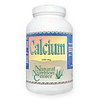| Package | Per Pill | Price | Savings | Bonus | Order |
|---|---|---|---|---|---|
| 500mg × 60 pills | $0.78 | $47.04 | + Levitra | ||
| 500mg × 90 pills | $0.65 | $58.56 | $12 | + Viagra |
INDICATIONS
Calcium is a mineral that is found naturally in foods. Calcium is necessary for many normal functions of the body, especially bone formation and maintenance. Calcium can also bind to other minerals (such as phosphate) and aid in their removal from the body.
INSTRUCTIONS
Use exactly as directed on the label, or as prescribed by your doctor. Do not use in larger or smaller amounts or for longer than recommended.
Calcium carbonate works best if you take it with food. Swallow the calcium carbonate tablet or capsule with a full glass of water.
The chewable tablet should be chewed before you swallow it.
Use the calcium carbonate powder as directed. Allow the powder to dissolve completely, then consume the mixture.
Shake the oral suspension (liquid) well just before you measure a dose. Measure the liquid with a special dose-measuring spoon or medicine cup, not with a regular table spoon. If you do not have a dose-measuring device, ask your pharmacist for one. Store at room temperature away from moisture and heat.If you missed a dose - take the missed dose as soon as you remember. Skip the missed dose if it is almost time for your next scheduled dose. Do not take extra medicine to make up the missed dose.
DOSAGE
Usual Adult Dose for Osteoporosis:
2500 to 7500 mg/day orally in 2 to 4 divided doses.
Usual Adult Dose for Hypocalcemia:
900 to 2500 mg/day orally in 2 to 4 divided doses. This dose may be adjusted as needed to achieve a normal serum calcium level.
Usual Adult Dose for Dyspepsia:
300 to 8000 mg/day orally in 2 to 4 divided doses. This dose may be increased as needed and tolerated to decrease symptoms of stomach upset.
Maximum Dose: 5,500 to 7980 mg (depending on product used). Not to exceed maximum daily dosage for a period of greater than 2 weeks unless directed by a physician.
Usual Adult Dose for Duodenal Ulcer:
1250 to 3750 mg/day in 2 to 4 divided doses. This dose may be increased as needed and tolerated to decrease the abdominal discomfort. The major limiting factor to the chronic use of calcium carbonate is gastric hypersecretion and acid rebound.
Usual Adult Dose for Gastric Ulcer:
1250 to 3750 mg/day in 2 to 4 divided doses. This dose may be increased as needed and tolerated to decrease the abdominal discomfort. The major limiting factor to the chronic use of calcium carbonate is gastric hypersecretion and acid rebound.
Usual Adult Dose for Erosive Esophagitis:
1250 to 3750 mg/day orally in 2 to 4 divided doses. The potential for acid rebound could be detrimental. However, antacids have been frequently used in the management of erosive esophagitis and may be beneficial in decreasing the acidity of gastric contents.
Maximum Dose: 5,500 to 7980 mg (depending on product used). Not to exceed maximum daily dosage for a period of greater than 2 weeks unless directed by a physician.
Usual Adult Dose for Gastroesophageal Reflux Disease:
1250 to 3750 mg/day orally in 2 to 4 divided doses. The potential for acid rebound could be detrimental. However, antacids have been frequently used in the management of erosive esophagitis and may be beneficial in decreasing the acidity of gastric contents.
Maximum Dose: 5,500 to 7980 mg (depending on product used). Not to exceed maximum daily dosage for a period of greater than 2 weeks unless directed by a physician.Usual Pediatric Dose for Hypocalcemia:
Neonatal:
Hypocalcemia (dose depends on clinical condition and serum calcium level): Dose expressed in mg of elemental calcium: 50 to 150 mg/kg/day in 4 to 6 divided doses; not to exceed 1 g/day
Usual Dosage:
Antacid:
Children 2 to 5 years: Childrens Pepto, Mylanta (R) Childrens: 1 tablet (400 mg calcium carbonate) as symptoms occur; not to exceed 3 tablets/day
Children 6 to 11 years: Childrens Pepto, Mylanta (R) Childrens: 2 tablets (800 mg calcium carbonate) as symptoms occur; not to exceed 6 tablets/day
Children 11 years and older:
Tums (R), Tums (R) E-X: 2 to 4 tablets chewed as symptoms occur; not to exceed 15 tablets [Tums (R)] or 10 tablets [Tums (R) E-X] per day
Tums (R) Ultra: 2 to 3 tablets chewed as symptoms occur; not to exceed 7 tablets per day
Hypocalcemia (dose depends on clinical condition and serum calcium level): Dose expressed in mg of elemental calcium:
Children: 45 to 65 mg/kg/day in 4 divided dosesSTORAGE
Store Calcium Carbonate at 77 degrees F (25 degrees C). Store away from heat, moisture, and light. Brief storage at temperatures between 59 and 86 degrees F (15 and 30 degrees C) is permitted. Do not store in the bathroom. Keep Calcium Carbonate out of the reach of children and away from pets.
MORE INFO:
Calcium carbonate is a chemical compound with the formula CaCO3.
Do not use Calcium Carbonate if you are allergic to any ingredient in Calcium Carbonate.
Do not take calcium carbonate or antacids that contain calcium without first asking your doctor if you also take other medicines. Calcium can make it harder for your body to absorb certain medicines. Calcium carbonate works best if you take it with food.
To make sure you can safely take calcium carbonate, tell your doctor if you have any of these other conditions:
- a history of kidney stones;
- a parathyroid gland disorder.
Talk to your doctor before taking calcium carbonate if you are pregnant. Talk to your doctor before taking calcium carbonate if you are breast-feeding a baby.
All medicines may cause side effects, but many people have no, or minor, side effects. No COMMON side effects have been reported with Calcium Carbonate. Seek medical attention right away if any of these SEVERE side effects occur when using Calcium Carbonate:
- Severe allergic reactions (rash; hives; itching; difficulty breathing; tightness in the chest; swelling of the mouth, face, lips, or tongue).
This is not a complete list of all side effects that may occur. If you have questions about side effects, contact your health care provider. Call your doctor for medical advice about side effects.
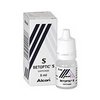 BetopticBetoptic is indicated for the treatment of elevated intraocular pressure in patients with chronic open-angle glaucoma or ocular hypertension.as low as $8.07
BetopticBetoptic is indicated for the treatment of elevated intraocular pressure in patients with chronic open-angle glaucoma or ocular hypertension.as low as $8.07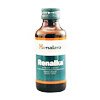 RenalkaRenalka syrup improves urinary symptoms like burning micturition, frequency of micturition, etc.as low as $27.81
RenalkaRenalka syrup improves urinary symptoms like burning micturition, frequency of micturition, etc.as low as $27.81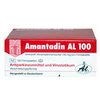 AmantadineAmantadine is used for preventing and treating certain types of flu. It is used to treat Parkinson disease and uncontrolled muscle movements caused by some medicines.as low as $0.8
AmantadineAmantadine is used for preventing and treating certain types of flu. It is used to treat Parkinson disease and uncontrolled muscle movements caused by some medicines.as low as $0.8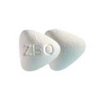 AravaArava is used to relieve symptoms caused by rheumatoid arthritis, such as inflammation, swelling, stiffness, and joint pain. This medicine works by stopping the body from producing too many of the immune cells that are responsible for the swelling and inflammation.as low as $1.41
AravaArava is used to relieve symptoms caused by rheumatoid arthritis, such as inflammation, swelling, stiffness, and joint pain. This medicine works by stopping the body from producing too many of the immune cells that are responsible for the swelling and inflammation.as low as $1.41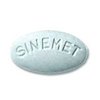 SinemetSinemet (Carbidopa/Levodopa) is used for treating symptoms associated with Parkinson disease and parkinsonism-like symptoms.as low as $0.94
SinemetSinemet (Carbidopa/Levodopa) is used for treating symptoms associated with Parkinson disease and parkinsonism-like symptoms.as low as $0.94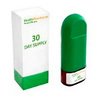 FlonaseFlonase is used for the treatment of allergic and nonallergic nasal symptoms including congestion, sneezing, itching, and runny nose.as low as $31.66
FlonaseFlonase is used for the treatment of allergic and nonallergic nasal symptoms including congestion, sneezing, itching, and runny nose.as low as $31.66